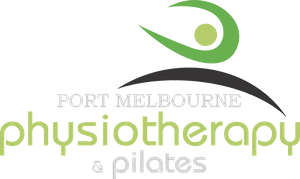The Fourth Trimester – what is it?
The Fourth Trimester is a term that may be unknown to many. Historically, we know that there are three distinct trimesters from conception until the birth of your baby. The Fourth Trimester is a term used to describe the first three months after a baby is born. It is a term named by paediatrician Dr Harvey Karp. This is based on the concept that babies are birthed months before their brains are sufficiently developed to be with us earth-side.
It is a time of massive transition for babies as they adjust to life outside of the womb. For nine months they have been housed in the comfort and security of the womb. There are no hunger pains or thirst. The baby has no need to pass painful wind and no exposure to smells or bright lights. There’s not even the sensation of feeling hot or cold.
Then suddenly your baby is born into the world with all of these things. It can be quite a rude shock and is often really unsettling for our little ones. This time can be equally distressing for us as parents, listening to their cries. You may be familiar with the term “witching hours”. This is a period of often persistent crying that starts around 4/5pm and can last for hours.

The 5 S’s:
Dr Harvey Karp suggests using the 5 S’s method for calming fussy or unsettled babies:
- Swaddling. This recreates the snug feeling inside the womb, decreases startling and
increases sleep. - Side or stomach holding. Please remember a baby should only be placed on their backs for
sleep. - Shush or white noise. Contrary to myth, babies don’t need total silence to sleep. In the
womb the sound of blood flow is a shush louder than a vacuum cleaner! You can purchase
white noise machines, or if you have an old iPhone or iPad, you can download free white noise apps to use. - Swinging. Life in the womb is very jiggly. You can try to recreate this with fast, tiny motions,
making sure the head and neck are always supported. - Sucking. Many babies calm easier with a dummy or if you can breastfeed.
AND of course, lots of cuddles, a nice warm bath, baby wearing and skin to skin contact to reinforce close contact and comfort.
It is important to mention that this period of transition is normal. Whilst it can be overwhelming adjusting to your new life in the fourth trimester, it is a period of time you will look back on so fondly and cherish all those squishy cuddles.
The ‘birth’ of the mother:
It is not just babies who are adapting and awakening to this new world. It’s important to acknowledge the changes for the mother also. New mums are undergoing a huge transition as they move from independent woman to mother. This comes with changes in multiple domains including physical, psychological/emotional, social and spiritual.
Some of these changes include (and are not limited to):
- Navigating the changes with your postpartum body.
- Hormonal fluctuations.
- Effects of chronic sleep deprivation and stress.
- Recovery from birth.
- Changes in identity, personality and self-esteem.
- Learning on the job (with no manual!)
- Lack of autonomy and freedom as you once had.
- Re-evaluating friendships and changing intimate partnership roles and responsibilities.
- External pressures, conflicting information and interventions.
- Societal norms, values and expectations.
- Changes in spiritual practices and beliefs.
Looking after yourself in the fourth trimester and onward:
Mental ill health prevalence in new parents is high. Did you know that 1 in 5 mothers suffer from postnatal depression and/or anxiety and 1 in 10 dads? We can tend to forget about the dads but they are equally important and their lives change dramatically too. If you are a new parent reading this and are experiencing difficulties, I urge you to seek help. This may be through your GP, OB or MCHN.
There are so many support services available to parents, which I have listed below. Parenthood is a rollercoaster of emotions. It is not failing to admit you need physical or emotional support.
There is probably someone you know in your family, group of friends or in your Mother’s Group who is struggling or has struggled at some point. It’s so important we open this dialogue and say it is ok, and normal, if you are having a difficult time.
Here at PMPP, we specialise in providing new mums with prenatal and postnatal care and assistance.
PMPP services include:
- 6 week+ Post Natal Physiotherapy checks. We have access to a real-time ultrasound machine to assess your pelvic floor/core muscle function.
- We have a Pelvic Floor Physiotherapist, Julia Raptis. Julia specialises in the diagnosis and treatment of incontinence issues, pelvic pain, perineal birth trauma and abdominal muscle separation (DRAM). Please note that Julia is on maternity leave at present.
- Our Physiotherapists can treat mastitis (see link to a blog on mastitis/blocked milk ducts here: https://portmelbournephysio.com.au/mastitis-blocked-milk-ducts/
- Treating aches or pains associated with pregnancy and looking after your little one. Examples of such conditions include carpal tunnel and neck/back pain.
- Clinical Exercise Classes tailored specifically to your needs. These classes are safe during pregnancy and once you’ve been cleared to resume exercise following childbirth.
- We also offer Remedial Massage.
Useful links/phone support:
- Perinatal Anxiety & Depression Australia (PANDA): 1300 726 306
- Maternal and Child Health Information Line: 132 229
- Beyond Blue: 1300 22 4636 (24 hours/ 7 days)
- Parent Line: 13 22 89
~ Diana Emmerson

Here is Diana, her husband, Chris and their son, Harvey, born 26/4/2019.
You may be interested in Ali’s recent pregnancy/postnatal blog here: https://portmelbournephysio.com.au/pregnancy-childbirth-postnatal-journey/
You may also find this podcast insightful: https://podcasts.apple.com/by/podcast/motherhood-a-new-identity-with-dr-libby-quinn/id1453463089?i=1000474517368

